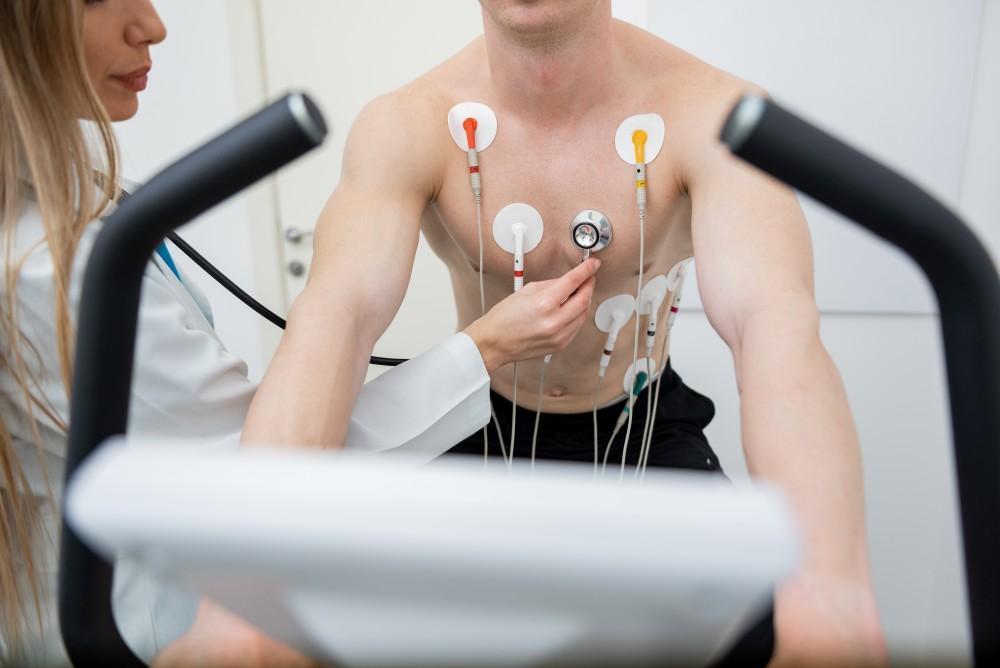
What You Need to Know About Cholesterol Levels

High cholesterol can increase your risk of serious complications such as heart attacks and strokes 一 both of which are leading causes of death in America. High cholesterol doesn’t have any obvious symptoms, and without any warning signs, you may not even know that you need to make lifestyle changes.
The good news is that high cholesterol is easily detected through routine blood work here at Harlem Cardiology in East Harlem, New York City.
Here’s what you need to know about cholesterol levels, courtesy of Dr. Henock Saint-Jacques and his expert team:
The basics of cholesterol
Cholesterol is a waxy, fatty substance found in your blood. While it has a bad reputation as being dangerous, you do need cholesterol. Your body needs cholesterol to help produce sex hormones as well as help make bile in your liver.
However, too much cholesterol can lead to health problems like heart disease.
Types of cholesterol
There are two main types of cholesterol: LDL (low-density lipoprotein) and HDL (high-density lipoprotein).
LDL is often referred to as "bad" cholesterol because it can build up in your arteries.
HDL is considered the "good" cholesterol because it helps remove LDL from your bloodstream.
Your HDL ushers LDL out of your blood and into your liver before it’s eventually excreted through feces.
What your numbers mean
Now that we’ve covered what cholesterol is, let’s talk about what your cholesterol levels mean. Your cholesterol is measured via a blood test. You may hear this test referred to as a cholesterol panel, a lipid panel, or a fasting lipid panel. Regardless of the name, this blood test gives you valuable information about your cholesterol levels.
A lipid panel usually contains four different cholesterol measurements, your tricycles, and sometimes your cholesterol ratios.
Your total cholesterol
This number represents the total amount of cholesterol in your blood, including both LDL and HDL cholesterol. Ideally, your total cholesterol level should be below 200 milligrams per deciliter (mg/dL).
Your HDL cholesterol
A healthy HDL cholesterol level is typically above 40 mg/dL for men over the age of 20 and above 50 mg/dL for women over the age of 20.
Your LDL cholesterol
Your LDL cholesterol level should ideally be below 100 mg/dL.
Your VLDL cholesterol
Very low-density lipoprotein (VLDL) cholesterol carries triglycerides in your blood. While there's no specific target value for VLDL, levels below 30 mg/dL are generally considered healthy.
High VLDL, often with elevated LDL and triglycerides, may indicate increased cardiovascular risk.
Triglycerides
Triglycerides are another type of fat found in your blood. They aren’t cholesterol, but because elevated triglyceride levels are often associated with an increased risk of heart disease, they’re often included in your lipid panel. High triglycerides can develop independently from high blood cholesterol or in conjunction with it.
Ideally, your triglyceride level should be below 150 mg/dL.
Cholesterol ratios
Dr. Saint-Jacques may also calculate ratios based on your cholesterol levels, such as the LDL/HDL ratio or the total cholesterol/HDL ratio.
Your cholesterol ratio is important because it offers a more comprehensive view than looking at individual cholesterol numbers alone. For example, looking at ratios can help determine if you have a high enough ratio of HDL to help remove the bad LDL from your blood and mitigate cardiovascular risks.
The ideal ratio is 3.5 but anything under 5 is preferable.
What do your tests mean?
While we’ve covered the general guidelines, you may still have questions about your specific lipid panel results. After your test, Dr. Saint-Jacques reviews your results with you. Cholesterol tests can be used to diagnose high cholesterol or to assess how well your current treatment is working (or not).
If your cholesterol is high, he may recommend lifestyle modifications (including dietary changes and exercise requirements) that help naturally lower cholesterol. If needed, he may recommend medication to safely lower your cholesterol levels.
Questions? To learn more about your cholesterol or to schedule a test, call our office at 646-381-2181 or click here to book an appointment online.
You Might Also Enjoy...


Is It Possible to Lower My Blood Pressure Naturally or Do I Need Medicine?

What You Can Do Now to Prevent a Stroke Later in Life

3 Noninvasive Tests That Measure the Health of Your Heart

What Can I Do About My Varicose Veins?


